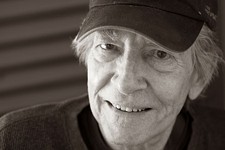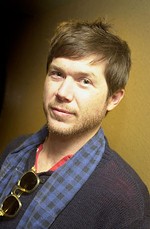New in Print
Coffeetable book Great Women of Film touches upon the difficulties women face in Hollywood, but it's actually an invaluable primer for anyone who wants to work in film.
By Clay Smith, Fri., April 12, 2002
Great Women of Filmby Helena Lumme; photographs by Mika Manninen and Helena Lumme
Billboard Books, 128 pp., $29.95 In the mid-Nineties, John Lahr wrote a profile in The New Yorker about Roseanne in which she employed her trademark unsavoryness by proclaiming that Jodie Foster, Susan Sarandon, and Meryl Streep were talented but also "fuckin' deluded ... They're all just upset about salaries, or something that feminism was about 25 years ago. They're rewarded for making the women's movement appear to be lost in time." There's no spoonful of sugar, but it's still good medicine: Roseanne is exactly right about the lily-white, self-congratulatory feminism Streep & Co. ooze. That's the stuff that, at first glance, Great Women of Film is peddling. The front cover features actress Joan Allen gazing knowingly into the ether while exuding an aura of hard-won wisdom. As it turns out, though, readers looking for a little feminist succor will have to turn to Gloria Steinem's latest. Helena Lumme -- who amassed the 30 interviews here from stars, directors, costume designers, even a prop master -- works under the presumption that being a woman in Hollywood just may be as lonely and difficult as Joan Allen makes it seem, but very few of the women Lumme has interviewed want to talk about being a woman. They'd rather talk about their craft. Rachel Portman may have been the first female composer to receive an Academy Award (for Emma), but "I've always thought of myself as a composer," she says, "not as a female composer." Robin Swicord, a screenwriter who penned Little Women (1994), confesses that "to the disappointment of teachers who thought I had some writing ability, what I turned out to be was a dramatist," but she's a dramatist with some good advice for budding screenwriters, male or female: "To be even medium-good, a screenplay must have the concision of poetry, the visual power of a folio of photographs, the compression and detail of a short story, the narrative drive and thematic underpinnings of a novel ... ." Great Women of Film touches upon the difficulties women face in Hollywood, but it's actually an invaluable primer for anyone who wants to work in film.








